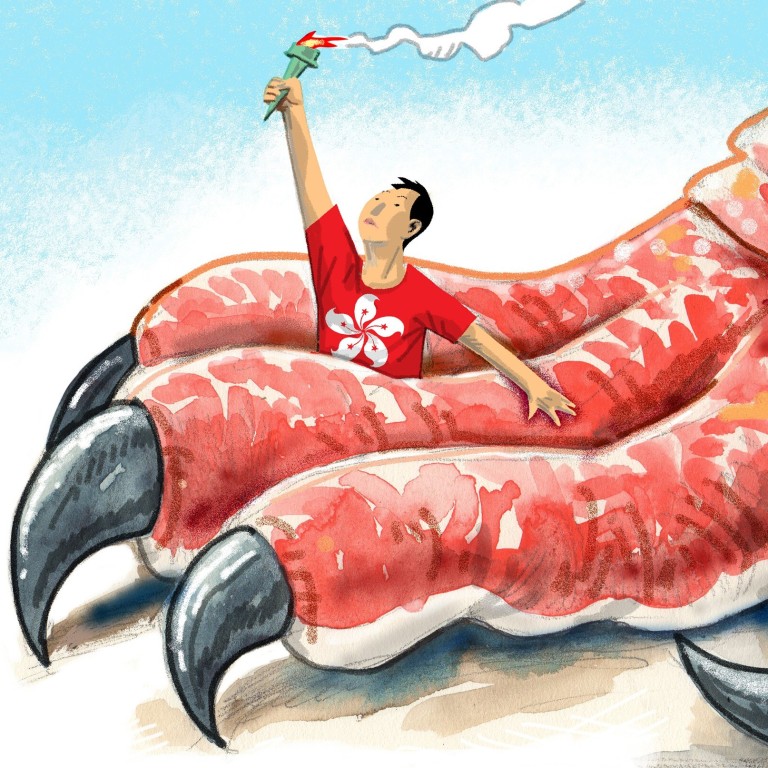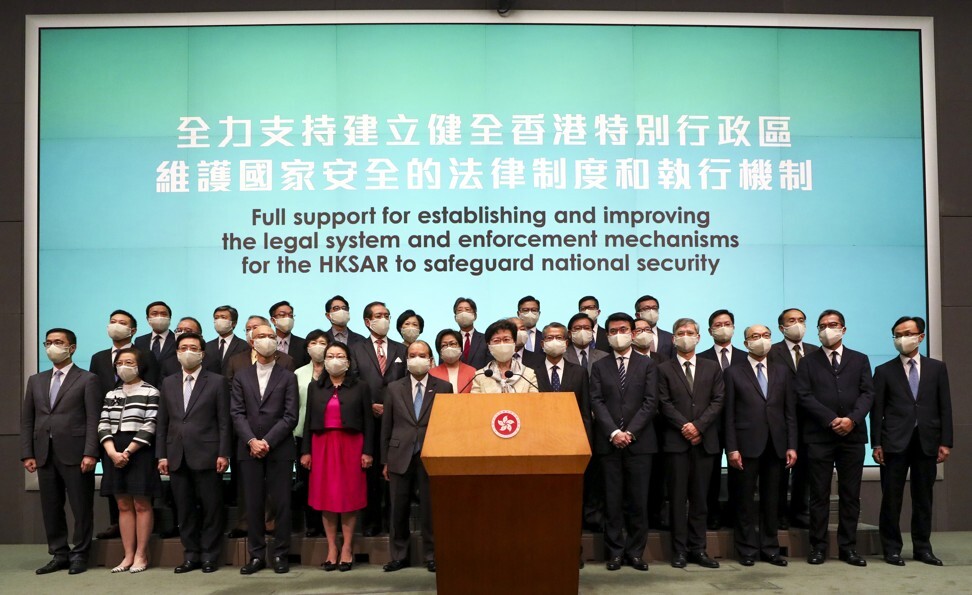
Hong Kong needs a win in democratic progress, however small
- Mutual distrust between Beijing and the SAR’s democracy campaigners has made meaningful engagement impossible and blocked progress
- With Beijing tightening its control and Hong Kong embroiled in the broader US-China stand-off, this stasis is pushing Hong Kong towards a state of despair
On reflection, post-1997 Hong Kong charts the history of an uphill battle for democracy. To many, we now seem to be back at square one.
The Basic Law allows for the transition from a partial democracy to full electoral democracy, subject to constitutional review and consensus. This laid the ground for a continuous tug of war between the pan-democratic camp demanding “double universal suffrage” – for electing both the chief executive and the legislature – and Beijing insisting on gradual change and balanced representation.
Central government officials have stepped up their supervision over the city as it became clear the Carrie Lam administration and the pro-establishment camp could not stabilise society. That Beijing has stepped in at the risk of eroding local autonomy and inviting international criticism suggests national leaders have lost their patience. To them, Hong Kong is on the verge of collapse.
Meanwhile, the separatists’ mutual-destruction approach, based on extensive foreign intervention, is delusional.

00:48
‘Frankenstein’ China requires more assertive global response, says US top diplomat Pompeo
Until the US learns to reconcile with a new multipolar global reality, we can only hope both the central and local governments avoid any approaches that serve to aggravate the frictions.
Fear, not hubris, behind Beijing’s national security law in Hong Kong
Next year is critical as it will kick-start a series of major elections – the Legislative Council election in September, election in December of the committee that chooses the chief executive, and the chief executive election the following March. An election inspires hope for change.
Achieving the best-case scenario in democratic development is virtually impossible. What’s more realistic is to aim to rebuild a limited democracy that can function better and grow. The opportunity for change, even if it is limited and incremental, should not be dismissed out of hand. Some ideas can be considered.
Hong Kong should strive to introduce universal suffrage in the 2022 chief executive election to reinvigorate the government’s authority and strengthen its capacity to embark on bold administrative, social and economic reforms. This will shore up Hong Kong’s executive-led system.

It is an important step because, according to the road map mandated by Beijing, universal suffrage for legislative elections can only be considered if the chief executive is directly elected.
Is there still room for Hong Kong’s political centre? We’ll soon find out
There is also merit in institutionalising the role of an opposition in the legislature. One way is to establish the positions of majority leader and minority leader, with additional functions, remuneration and staff support. This can facilitate the integration and coordination of parties under two broad umbrellas, thus formalising a two-camp system. The majority and minority leaders can automatically assume the chairmanship and deputy chairmanship of the House Committee.
The 18 district councils should also be reformed. At present, they have only a consultative role. In their place, five to six larger regional councils should be set up, similarly elected by local franchise, with management responsibilities in recreation, amenities, street and market management, and environmental hygiene. Regional commissioners can be politically appointed, drawing on talent from inside and outside the civil service.
Finally, public sector reform should be revived with a new mission: to foster policy and operational innovation, smart management and people-based design that can bring public administration closer to the ordinary people.
The above changes within existing constitutional limits may be brushed off by pan-democratic politicians as window dressing. Some in the pro-establishment camp may consider them too drastic. But in the present gloomy atmosphere, we need some glimpse of light and breakthrough, or else despair may take over. The status quo is not an option.
Anthony Cheung is research chair professor of public administration at the Education University of Hong Kong and a former secretary for transport and housing (2012-17)

